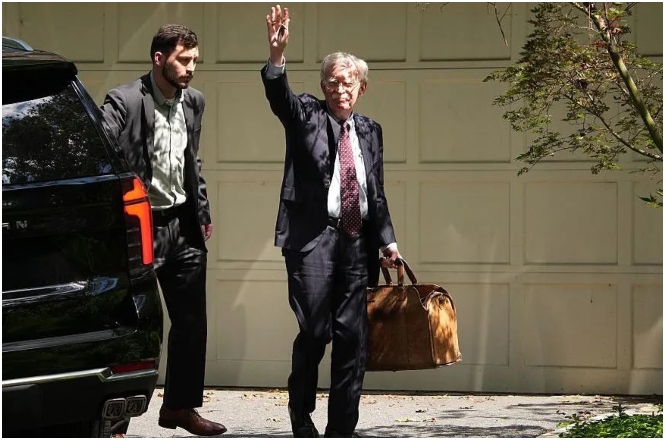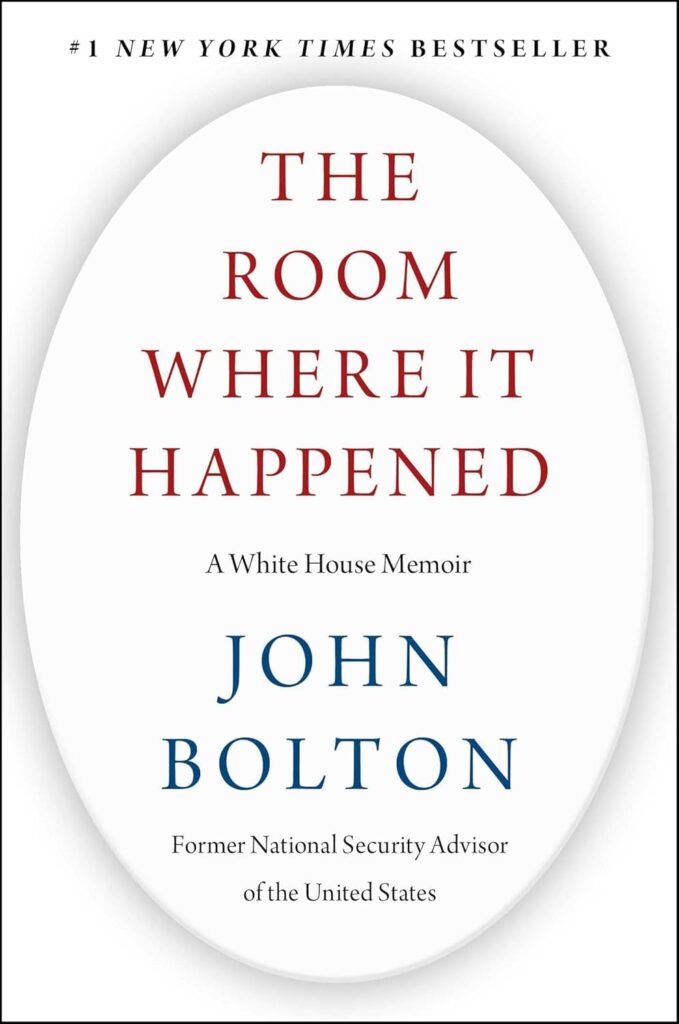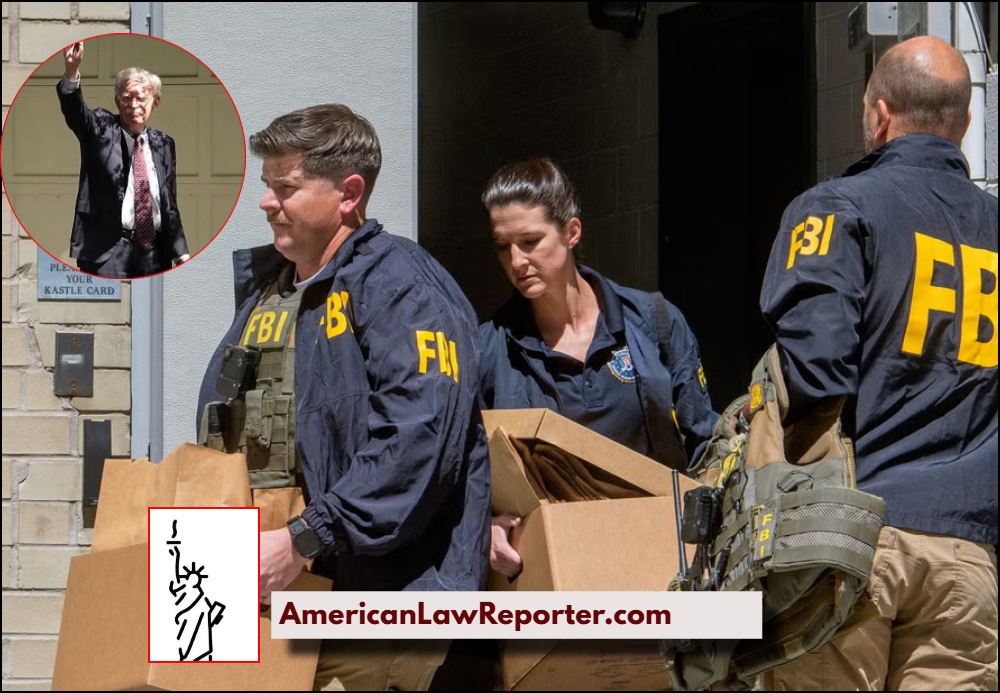The FBI searched the Maryland home and Washington, D.C. office of John Bolton, former national security adviser to Donald Trump, as part of an investigation into the possible mishandling of classified information.
The move underscores the sensitive intersection of national security law, executive privilege, and the government’s power to enforce secrecy agreements.
What Triggered the Search?

According to news sources, the raid was connected in part to concerns over classified documents. Bolton, a longtime Republican figure and vocal critic of Trump since leaving the administration in 2019, has faced allegations before. In 2020, the Justice Department accused him of breaching confidentiality agreements by disclosing sensitive material in his memoir The Room Where It Happened. The lawsuit was dropped in 2021 under President Joe Biden.
While no charges have been filed, law enforcement officials confirmed they were conducting “authorized activity in the area.” Agents were seen removing boxes from Bolton’s property, a standard practice when executing a search warrant tied to a records investigation.

The Legal Framework Behind the Search
The FBI search suggests investigators may be probing potential violations under:
- The Espionage Act (18 U.S.C. § 793) — criminalizes unauthorized retention or transmission of national defense information.
- The Federal Records Act (44 U.S.C. Chapter 31) — requires proper preservation and management of official records.
- Non-Disclosure Agreements (NDAs) and Pre-Publication Review — former officials like Bolton are bound by agreements requiring clearance before publishing books or speaking on sensitive national security matters.
Even without an indictment, search warrants are granted only if prosecutors persuade a judge there is probable cause that evidence of a crime exists at the locations to be searched.
Political Context
Trump has called Bolton a “sleazebag,” denying he ordered the raid, while Vice President JD Vance told NBC News that classified materials were “certainly part” of the probe. Critics, including Democrats, argue the investigation may be politically motivated, pointing to a string of inquiries against Trump’s adversaries since his return to office.
The FBI, however, has signaled a broader stance: Director Kash Patel posted on X that “NO ONE is above the law,” while Attorney General Pam Bondi added, “America’s safety isn’t negotiable. Justice will be pursued. Always.”
Why This Matters Legally
The case highlights an unresolved tension in U.S. law:
- How much control does the government retain over information after an official leaves office?
- When does a former official’s memoir or commentary cross the line into unlawful disclosure?
- And to what extent should political motivations be considered when enforcing classification rules?
Legal experts note that if prosecutors move forward, they must weigh not only statutory violations but also First Amendment concerns, particularly around prior restraint and the right to publish.
What Comes Next?
At present, Bolton has not been detained and has made no public comment. Any charges would likely involve the Espionage Act or breach of classified information agreements.
If no charges emerge, the search may still send a chilling message to other officials considering publishing accounts of their time in government.
For now, the investigation illustrates how classified information disputes remain a potent legal and political battlefield — especially when involving high-profile figures with adversarial relationships to the sitting president.

